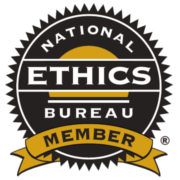How To Get Over Retirement Fears
As it’s depicted in popular culture and advertising, looking ahead to retirement is a time of great excitement and optimism. After all, if you’re in your 60s, you’ve likely been going to work every day for 40 years or more. So, retirement means you can spend your time doing the things you’ve always wanted to do.
While that depiction of retirement is in many ways true, it’s also true that those final years and months before retirement can be a source of anxiety for many people. The ads tell us they’re living the good life, but they don’t show how much sweat, work, and worry went into reaching that picture-perfect retirement.
Getting yourself to the retirement you’ve always wanted does take a lot of work and there are going to be moments of doubt and worry. But here’s the thing: Doubt and worry are both perfectly natural. Here are a few of the common fears that were highlighted in a recent article.1
The first common financial retirement fear is simply running out of money. Now, on the surface, that sounds obvious, and to a degree it is. But it’s not easy to determine how much money you’re likely to need in retirement with any real certainty.
One good way to address this fear is to work with an experienced financial services professional who can calmly and confidently address your concerns and questions. A financial services professional may be well positioned to help you add more certainty to determining how much money you’ll likely need once you’ve left the workforce.
In addition, a software program can help you make calculations and show you how much you need to be saving as you progress toward retirement. Perhaps most importantly, a software program may help you find places you can comfortably reduce your expenses after retirement to make it more likely that your money sees you through.
A second fear that you can overcome on your journey is the fear of inflation cutting into your nest egg. It’s true that because of inflation the money you’ve saved for retirement doesn’t have as much purchasing power.1 And if inflation were to go up rapidly, for whatever reason, it could imperil your preferred retirement lifestyle. Those changes could be small, like not being able to eat out or travel as often, or they could be more significant, depending on how much you have saved.
Finally, concerns about high healthcare costs are very common. It’s no revelation to say that healthcare is expensive, and there’s no reason to believe that it won’t just keep getting more expensive. So that leaves a lot of near-retirees sweating the details of their own coverage. But there are things you can do to help you prepare. One option may be opening a health savings account, which is more commonly referred to as an HSA. Not only will this kind of account help you cover medical costs, but it may also provide general tax savings.
You should note, however, that once you turn 65 and enroll in Medicare, you’ll no longer be able to fund an HSA.1
You want the months and years leading into retirement to be a time of excitement, not a time of worry. Working with a financial services professional to help you identify ways to build on your retirement strategy may help.
1 https://money.usnews.com/money/retirement/aging/articles/common-retirement-financialfears-and-how-to-overcome-them

